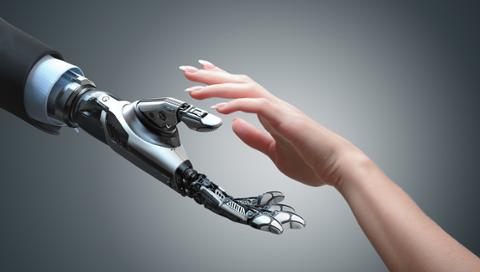How could the rise of artificial intelligence (A.I.) impact jobs?
According to a new report by Goldman Sachs, generative A.I. could end up automating 300 million jobs. Some 29 percent of computer and mathematical jobs are potentially vulnerable to A.I. takeover, but the new technology could also boost overall productivity.
“The good news is that worker displacement from automation has historically been offset by creation of new jobs, and the emergence of new occupations following technological innovations accounts for the vast majority of long-run employment growth,” the report added. “The combination of significant labor cost savings, new job creation, and higher productivity for non-displaced workers raises the possibility of a productivity boom that raises economic growth substantially, although the timing of such a boom is hard to predict.”
This isn’t the first time a major banking institution has claimed that A.I. will automate jobs for a significant portion of the population. As far back as 2019, for instance, a report by Bank of America Merrill Lynch predicted that automation would delete 800 million human jobs by 2035. Even before that, in 2017, the McKinsey Global Institute also cited a 800-million figure, including anywhere from 39 million to 73 million jobs impacted in the United States.
But that was before ChatGPT, Bard, and the current generation of A.I. chatbots made tech professionals nervous about the possibility of their jobs being automated. These chatbots are capable of producing workable code, leading many to question whether software developer and engineering positions are at risk. There’s also a competing idea that automation will ultimately benefit many tech professionals by offloading low-level tasks to a machine, leaving humans to perform more interesting, creative work.
During a recent episode of ‘Tech Connects,’ Nick Durkin, field CTO of harness.io (where he’s responsible for the organization's worldwide field engineering team, post-sales engineering team, and a portion of product), broke down how software engineers, developers, and other tech professionals can “future proof” their careers against automation:
It all comes down to one simple thing: even as software becomes more sophisticated at automating everything from tech-stack monitoring to code generation, it simply can’t match human ingenuity and creativity. Those tech pros who lean into their management, problem-solving, strategizing, and creative skills will not only move their organizations forward, but also have a better shot at maintaining their employment if the A.I. evolution really accelerates.
For those in specialized roles such as data scientist, it’s also worth paying attention to how to best integrate machine learning and A.I. tools into your workflow. With any luck, these tools may save you time—and make your job more interesting.



